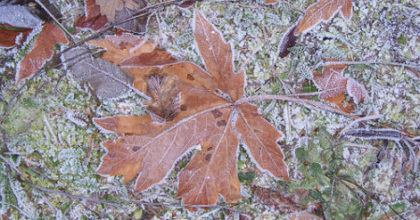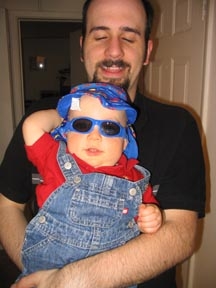
 )
)Let’s be honest: postdocs occupy a weird, liminal space in the path of the scholar. Is it a job? Are postdocs students? I was once told that my department considered postdocs students when it meant they didn’t have to provide faculty benefits, and it considered them special faculty when it meant they could withhold student benefits. We never even really bothered to give postdoctoral fellowships a real name; we basically just call them “that thing you do after you finish your doctorate but before you get a real job.” Postdoc positions are the Twenty Years After of roles.
As a result, I don’t think it’s clear how to do well as a postdoc (and it seems I’m not alone). There is an educational component, but there are no assignments, no tests, and no grades to provide feedback, and no graduation criteria to aim for. There is also a career component, but similarly no promotion criteria and possibly no formal review process of any kind. At the same time, you are likely joining an existing research program with plenty of work needing to be done. So it may be very easy to fill the days working hard at science, and isn’t that what you signed up for? Yet spending 2-4 years just working hard at science may leave plenty of important “postdocking” undone.
I know this because that was my experience. I followed what I thought was the appropriate path to become a scientist–which was synonymous in my mind with university professor in the sciences: straight from an undergrad in biology to a PhD program to a postdoc. As a graduate student, I was assured that the Johns Hopkins “old boys’ network” would get me in the door wherever I wanted. In retrospect, the career training I received didn’t go much beyond that; if there was more guidance being offered I missed it. I did well enough to obtain a respectable postdoctoral fellowship at Carnegie Mellon, where I continued learning and doing science just like I had in graduate school. That had been sufficient so far; surely that would continue. But when I tried to take the next step and apply for faculty positions, I was a little surprised to not get so much as a single “Thanks for your application; we’ll be in touch” form response.

I have since been told that’s not uncommon. Faculty positions aren’t plentiful, and good candidates for one opening tend to be good candidates for many. That leaves few slots even just for interviews for the remaining faculty hopefuls. There may have been some additional factors at the time: fall of 2008 was an especially bad time to be looking for any kind of job and the sciences specifically were feeling the pinch of budget plateaus after 1990s growth leading to fewer and fewer grants for early career scientists. Still, there were open positions, and some of my peers filled them, so there potentially was an opportunity for me to do something different and get a faculty job offer.
There were also elements of my postdoc position specifically that I think did not make a transition to a faculty job a natural outcome of my time. My supervisor was comfortable with publishing infrequently–“when the results warrant”–which made a lot of sense to me ideologically but may not have helped my academic career advancement. I was also helping my supervisor transition to a new field. He was also looking to apply his machine learning and language processing expertise to biological problems; I wanted to learn more machine learning and was happy to share my knowledge of biology. Scientifically, it was a win-win. Still, he did not have a funding or publication record in computational biology which made it trickier to get grants.
Additionally, I was in the midst of starting a family. My first child was just a couple of months old when I started my postdoc, and my next arrived about halfway through. It’s not impossible to start a family and a faculty career, but in hindsight it seems like more folks either opt to delay marriage or at least kids until they are further along careerwise, or delay entering the tenure track until their kids are a little older.
In light of all that, do I wish I had chosen a different postdoc or taken a more substantially different path altogether? No, not really. The pioneering and interdisciplinary nature of my postdoc made it appealing to me. I learned plenty from my supervisor and felt the time was fruitful and satisfying. I was able to support my family while maintaining a fairly family-friendly schedule; computational biology research doesn’t require late night feeding or data collection to accommodate life cycles or lengthy assays. And I certainly don’t wish I had different (or no) kids.
Instead, what I took away from my experience, and what I recommend to others, is to make sure that your postdoc experience is worthwhile as an end unto itself. If you only treat it as a means to get to the next thing, you stand a good chance of being disappointed, especially if that next thing is a faculty position. But if you are getting something worthwhile from it as you go, then you’ll be in good shape no matter what.
At the same time, I do think I could have approached that same postdoc situation differently to be even more fruitful, with or without changing my faculty job prospects. We’ll explore that topic next week. In the meantime, check out Kelly Seaton’s extensive list of resources for using your postdoc time well.
Don’t forget last week’s post seeking your input on future science blog posts. I’d really love to hear from you, and there’s a chance to win a copy of Jesus, Beginnings, and Science.
And if you haven’t seen Royce Francis’ series on immigration, I recommend checking it out. I think you’ll want to follow him on his journey over the next few months.
Andy has worn many hats in his life. He knows this is a dreadfully clichéd notion, but since it is also literally true he uses it anyway. Among his current metaphorical hats: husband of one wife, father of two teenagers, reader of science fiction and science fact, enthusiast of contemporary symphonic music, and chief science officer. Previous metaphorical hats include: comp bio postdoc, molecular biology grad student, InterVarsity chapter president (that one came with a literal hat), music store clerk, house painter, and mosquito trapper. Among his more unique literal hats: British bobby, captain’s hats (of varying levels of authenticity) of several specific vessels, a deerstalker from 221B Baker St, and a railroad engineer’s cap. His monthly Science in Review is drawn from his weekly Science Corner posts — Wednesdays, 8am (Eastern) on the Emerging Scholars Network Blog. His book Faith across the Multiverse is available from Hendrickson.

Leave a Reply